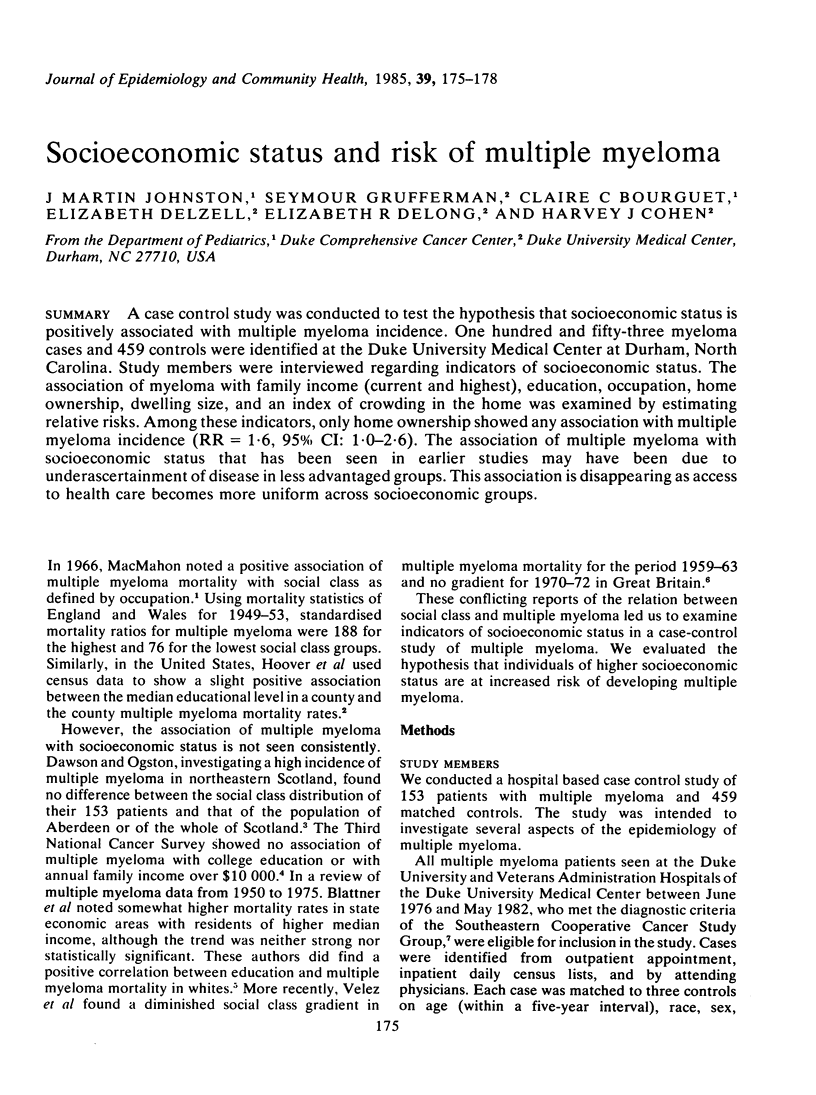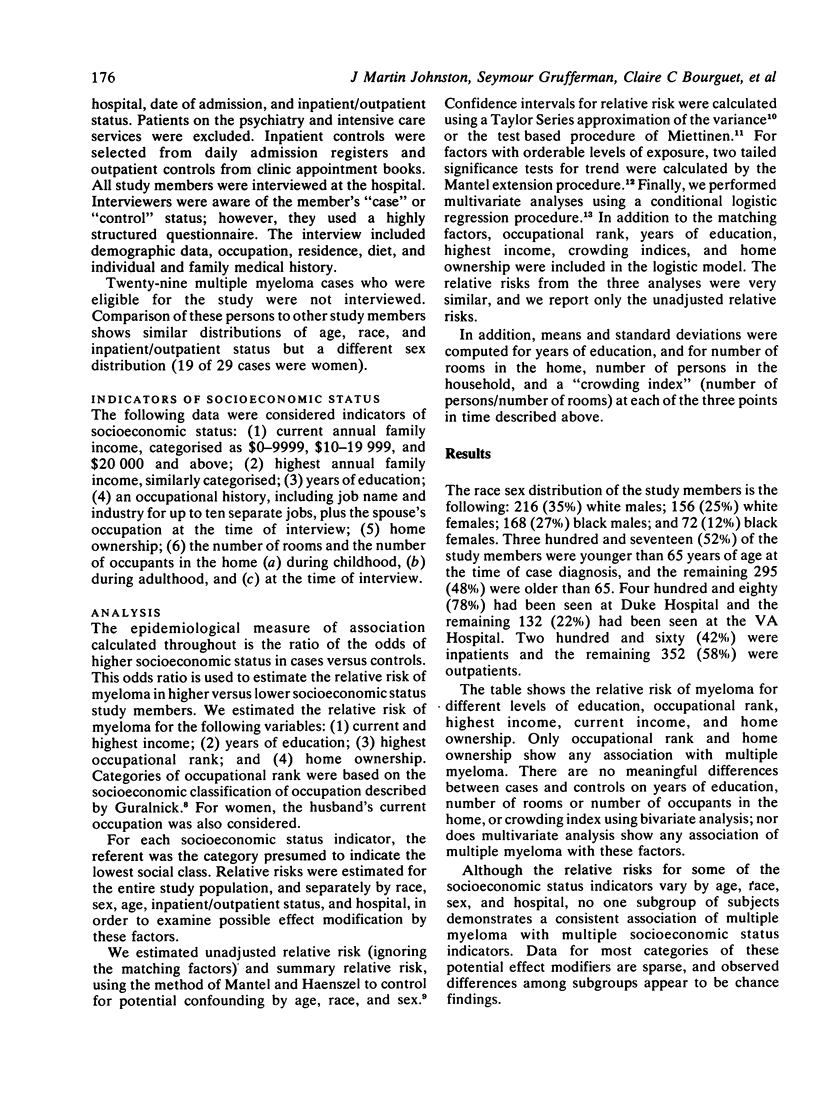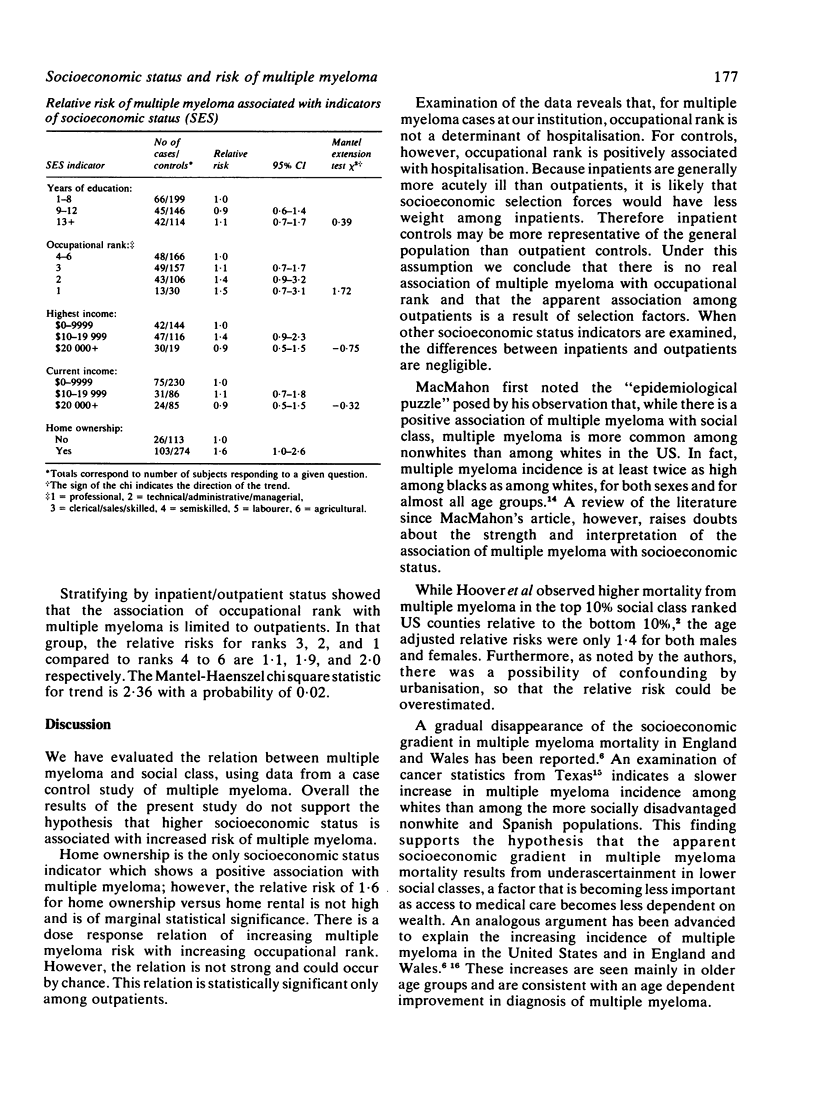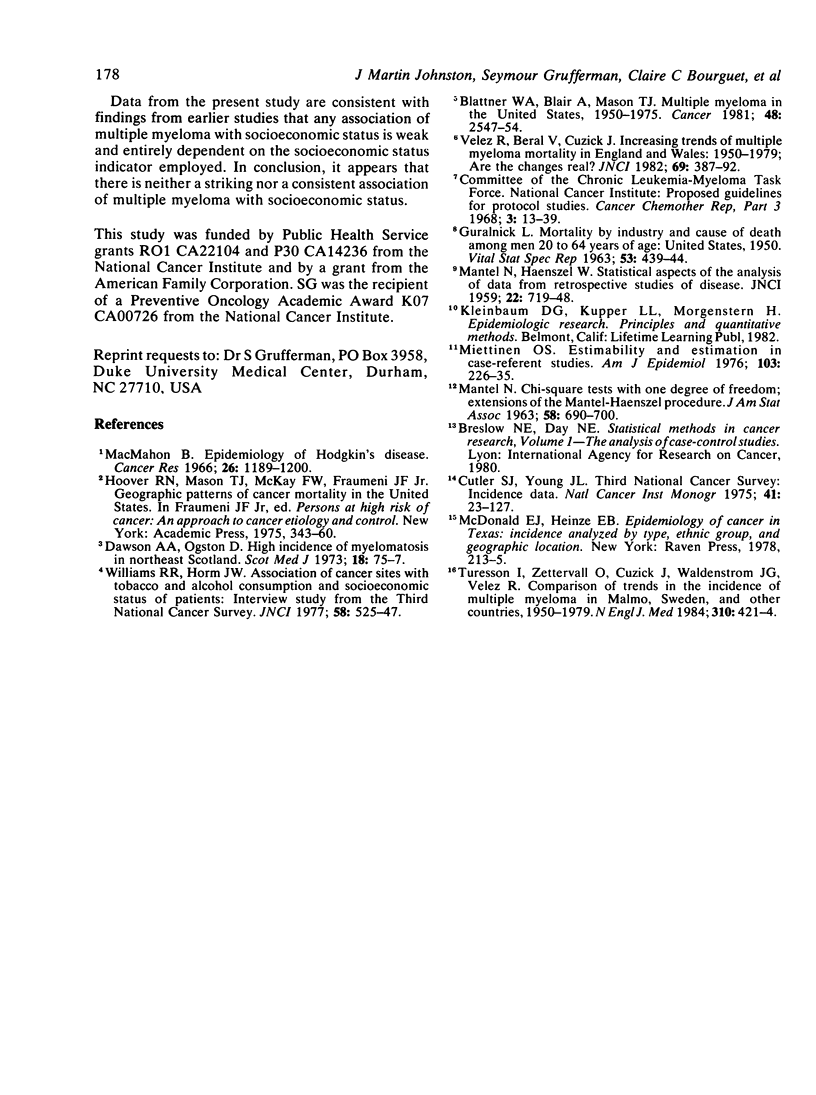Abstract
A case control study was conducted to test the hypothesis that socioeconomic status is positively associated with multiple myeloma incidence. One hundred and fifty-three myeloma cases and 459 controls were identified at the Duke University Medical Center at Durham, North Carolina. Study members were interviewed regarding indicators of socioeconomic status. The association of myeloma with family income (current and highest), education, occupation, home ownership, dwelling size, and an index of crowding in the home was examined by estimating relative risks. Among these indicators, only home ownership showed any association with multiple myeloma incidence (RR = 1.6, 95% CI: 1.0-2.6). The association of multiple myeloma with socioeconomic status that has been seen in earlier studies may have been due to underascertainment of disease in less advantaged groups. This association is disappearing as access to health care becomes more uniform across socioeconomic groups.
Full text
PDF



Selected References
These references are in PubMed. This may not be the complete list of references from this article.
- Blattner W. A., Blair A., Mason T. J. Multiple myeloma in the United States, 1950--1975. Cancer. 1981 Dec 1;48(11):2547–2554. doi: 10.1002/1097-0142(19811201)48:11<2547::aid-cncr2820481134>3.0.co;2-i. [DOI] [PubMed] [Google Scholar]
- Dawson A. A., Ogston D. High incidence of myelomatosis in North-East Scotland. Scott Med J. 1973 May;18(3):75–77. doi: 10.1177/003693307301800302. [DOI] [PubMed] [Google Scholar]
- MANTEL N., HAENSZEL W. Statistical aspects of the analysis of data from retrospective studies of disease. J Natl Cancer Inst. 1959 Apr;22(4):719–748. [PubMed] [Google Scholar]
- MacMahon B. Epidemiology of Hodgkin's disease. Cancer Res. 1966 Jun;26(6):1189–1201. [PubMed] [Google Scholar]
- Miettinen O. Estimability and estimation in case-referent studies. Am J Epidemiol. 1976 Feb;103(2):226–235. doi: 10.1093/oxfordjournals.aje.a112220. [DOI] [PubMed] [Google Scholar]
- Turesson I., Zettervall O., Cuzick J., Waldenstrom J. G., Velez R. Comparison of trends in the incidence of multiple myeloma in Malmö, Sweden, and other countries, 1950-1979. N Engl J Med. 1984 Feb 16;310(7):421–424. doi: 10.1056/NEJM198402163100703. [DOI] [PubMed] [Google Scholar]
- Velez R., Beral V., Cuzick J. Increasing trends of multiple myeloma mortality in England and Wales; 1950-79: are the changes real? J Natl Cancer Inst. 1982 Aug;69(2):387–392. [PubMed] [Google Scholar]
- Williams R. R., Horm J. W. Association of cancer sites with tobacco and alcohol consumption and socioeconomic status of patients: interview study from the Third National Cancer Survey. J Natl Cancer Inst. 1977 Mar;58(3):525–547. doi: 10.1093/jnci/58.3.525. [DOI] [PubMed] [Google Scholar]


